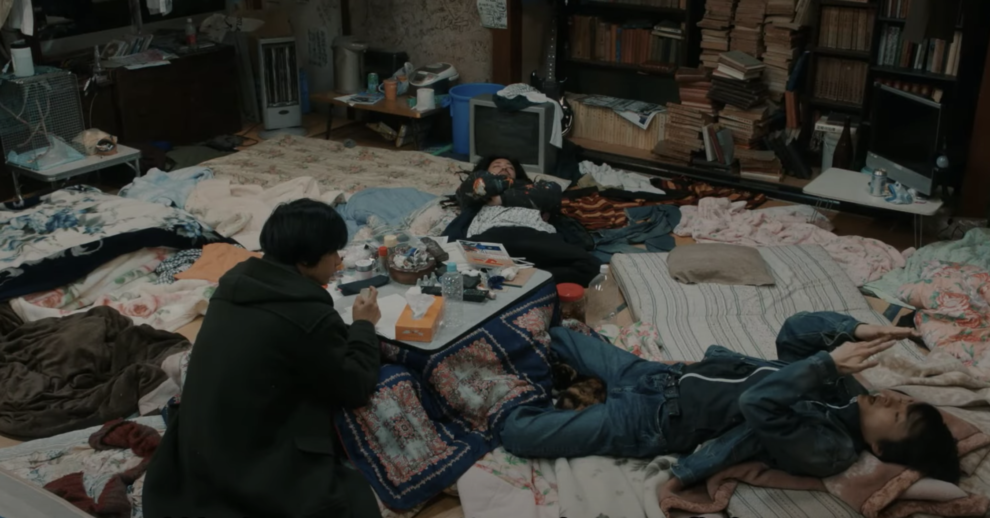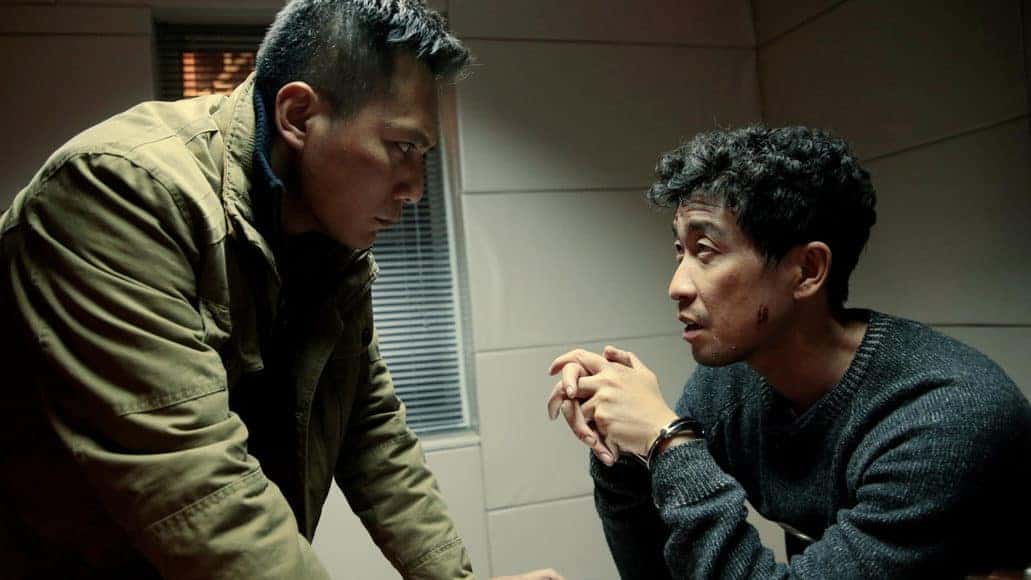Spatiality and memory entwined serve as a unique harbinger of emotions. In the film “Wonderwall”, directed by Yuki Maeda, pain and laughter, hellos and adieus have a physical representation, embodied and etched in a messy room, a small kitchen with cheap meals, in a common area where fantasies are broached and decisions are reached. Nothing forms a community, a collective identity and a sense of fighting for something other than oneself like a shared space and a shared story.
Wonderwall is streaming as part of JFF+ Independent Cinema

The shared space in this case is the Konoe dormitory, where students from a university in Kyoto since the 1900s have stayed and lived. Residing in the dormitory has become a tradition in itself, as the young occupants here create their own rules, rules that celebrate their idiosyncrasies, their non-conforming spirit, their own kind of harmonious chaos. The university administration, however, wants to demolish the dorm, initially raising safety issues, though the real reason for their desire for it to be torn down will be revealed later on. The students do not take this sitting down. They roll up their sleeves, study the regulations inside and out, prepare their arguments and face the officials. Tradition is tradition, fraternity is fraternity, family is family and all of these have been kept alive inside the Konoe dorm for decades. It's not something they will just let someone take away.
For freshmen Kyupi and Masara, the Konoe dorm is their only respite from a confusing, stifling world and from a family which does not really understand who they are. That's why when their de facto leaders Mifune and Shimura suddenly backtrack and retreat after one particular encounter with the administration, they feel lost, bewildered and angry. They are more than willing to throw the gauntlet and fight for the dorm even with their backs against wall, but their sense of alliance and solidarity gets smashed and snuffed at the most unexpected instant.
Nothing is as simple as it seems, however, and there is definitely more to this abrupt change than what meets the eye. The reason behind Mifune and Shimura's turn to reticence from recalcitrance is not as superficial or predictable as what Masara would like to believe. This sudden shift has deeper roots, but it's cleverly obscured by the writing of Aya Watanabe, who also wrote the 2020 animated film “Josee, The Tiger, And The Fish.” The screenplay is definitely the film's stellar strength. Every dialogue and diatribe is rife with razor-sharp reflections about society and its general animus toward the young, making the film more resonant than ever.
Complementing Watanabe's incisive writing is Maeda's playful, bright and dynamic direction. Each pan and focus toward a certain spot of the dormitory brings out character and memory, effectively humanizing the space, making it more personal. Maeda and Watanabe also intersperse a major development in the plot with real-world events, inserting a political commentary in an exuberant, sly and funny way.
The ensemble cast of Ren Sudo (Kyupi), Kazunori Mimura (Masara), Riko Narumi (Kaori), Amane Okayama (Shimura), Nakazaki Haya (Mifune) bounce off each other's energy, giving an organic showcase of angst and humor. When they utter aphorisms, they don't sound like self-righteous youngsters, but just people who are trying to hold on to the fading embers of idealism before reality sets in.
Speaking of reality, Wonderwall is based on real-life events, on a legal dispute between the university and the dorm's residents. There's been no ruling until the film's release, but the ending manages to create a whirlpool of emotions, sprinkling some dash of hope, but leaving no promises. It's this grounded take but also glorious romp into the zeitgeist of different generations which makes the film memorable and full of wonder, subduing, if not entirely shattering, walls of any kind.
















